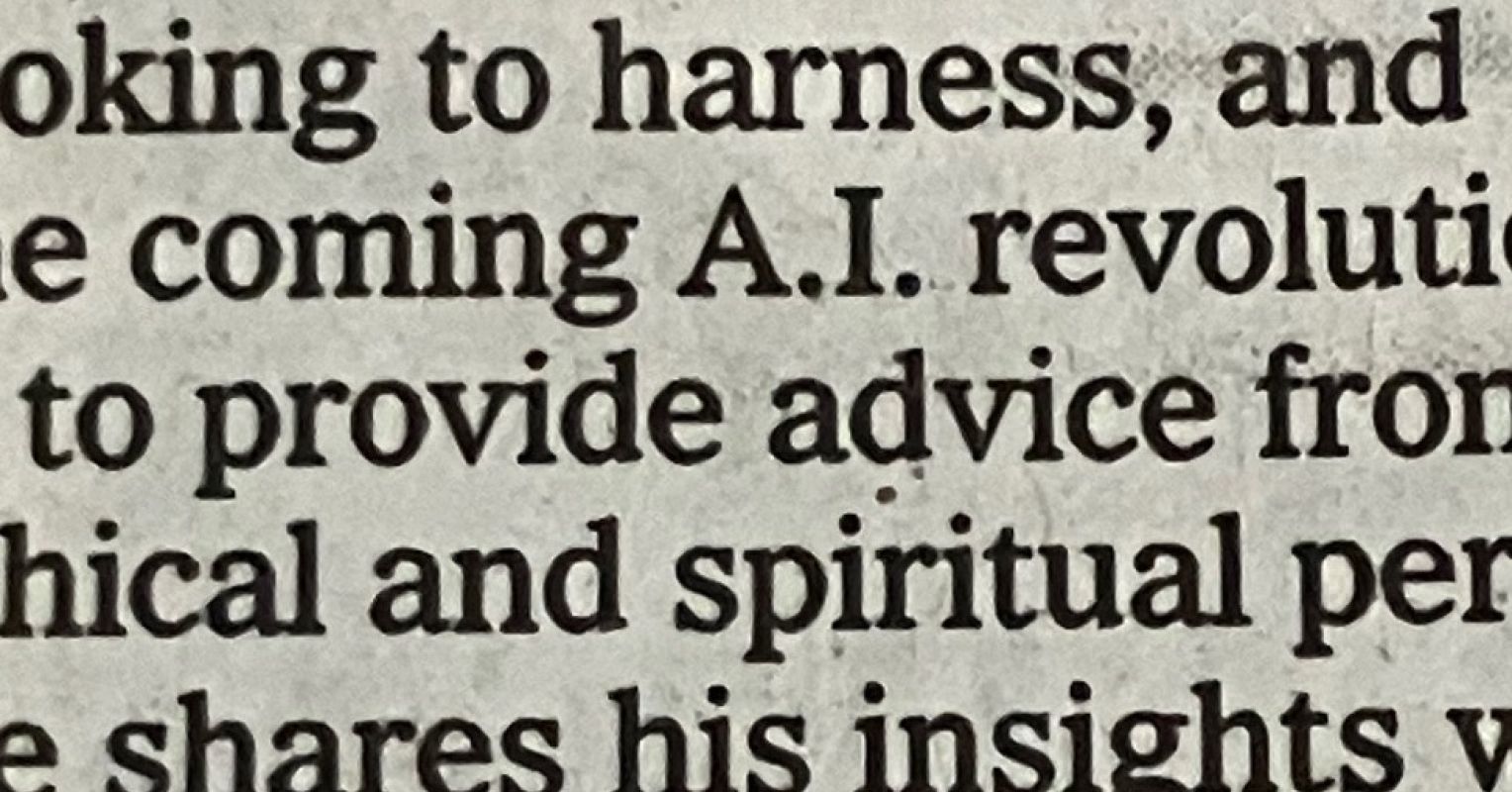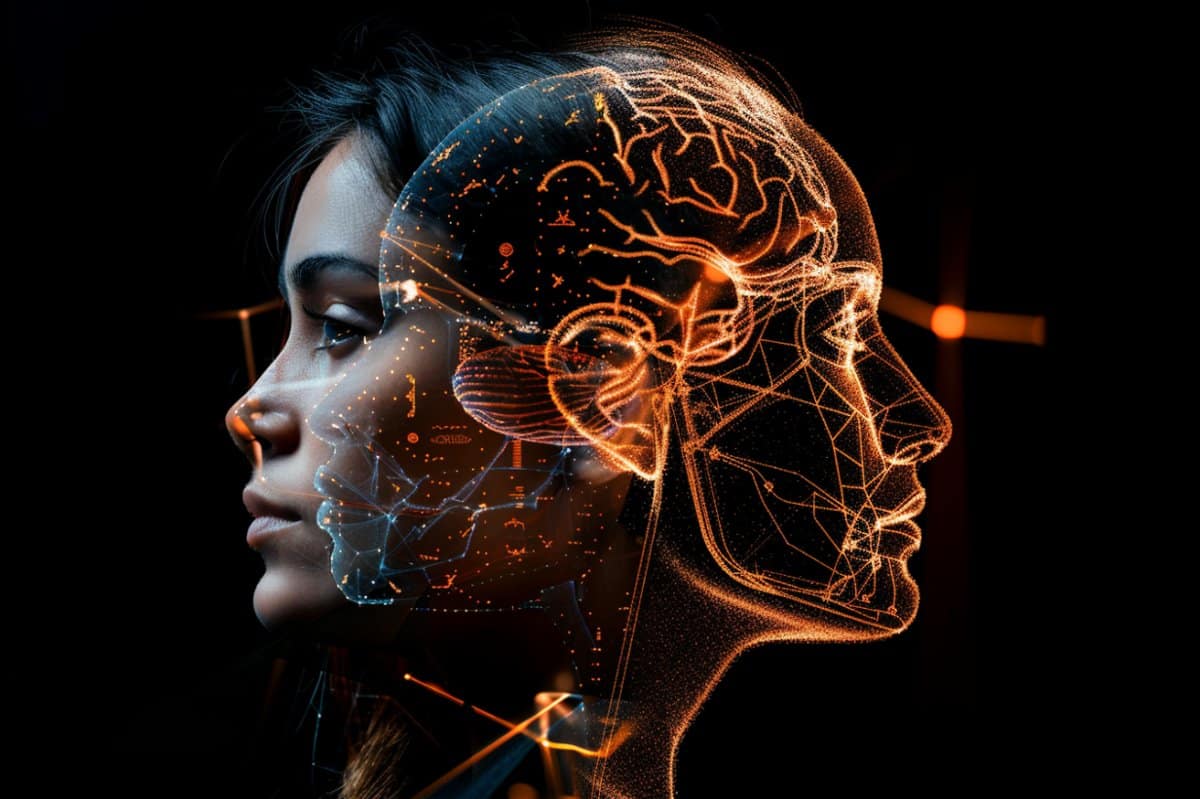Our six grandchildren, aged 1 to 10, had spent the entire day playing outside vigorously and joyfully. Following the completion of dinner, the kitchen tidying, and baths, it was time for storytelling.

Is Artificial Intelligence a Reliable Source of Truth?
Carrie Knowles
The group of cousins settled on the couch, encircling our eldest son, Neil. With anticipation in their eyes, Neil retrieved his iPhone, selected a narrative, and personalized it by inputting their names and attributes into ChatGPT.
In less than a minute, an elaborate adventure tale featuring the cousins as protagonists unfolded. They were captivated by the storytelling.
The narratives Neil shared with them were crafted with unexpected twists akin to those found in works by several young adult authors.
It was akin to a parlor trick—charming, yet still a trick at its core.
In my view, it represented the “age of innocence” of A.I..
The Dilemma of Truth
Despite the mesmerizing stories Neil recounted that evening, he later remarked on the practical issues with the system. As an example, he tasked ChatGPT with generating my professional resume.
Within moments, a version of my life materialized, albeit more fantastical than factual. It depicted me graduating from institutions I had never attended, adorned with a plethora of awards I had never heard of, credited with additional books I had not written, and embellished other details for good measure.
Was there any semblance of truth in it? To some extent, yes, enough to render me somewhat recognizable and plausible. However, a significant portion of it was fabricated. The extent of the falsehoods was unsettling.
What if this embellished ChatGPT-generated resume surfaced online?
It was evident that the lack of accuracy in my A.I.-crafted resume could lead to embarrassing, possibly legal, repercussions.
That was the moment when I began to contemplate the ominous potential of A.I..
Confronting the Realities of A.I.
Why did it invent achievements for me that I had never attained?
A.I. has the ability to swiftly compile and present data, but it does not discern between truth and falsehood. It merely aggregates and presents information without verifying its veracity.
So, where did ChatGPT source the inaccurate data? Perhaps from an individual with a similar name. Maybe from an article about me or my work that contained inaccuracies. It’s possible that it took creative liberties, assuming I should have achieved more by now, and thus embellished my accomplishments. The origins remain unclear.
What is clear is that it erred, and such inaccuracies pose real-world consequences.
Can I Depend on ChatGPT and A.I. to Present the Truth?
No, I cannot.
I am not alone in my reservations about this emerging technological phenomenon. A plethora of articles in magazines and newspapers delve into A.I.: its capabilities and its pitfalls.
Even the Vatican has enlisted its own A.I. ethicist: Father Benanti. Pope Francis has tasked him with safeguarding the vulnerable from the impending technological revolution brought about by A.I.. In addition to advising the Pope, Father Benanti teaches a course on moral theology and ethics titled “The Fall of Babel: The Challenges of Digital, Social Networks, and Artificial Intelligence.”
While I am not a theologian or an ethicist, the falsified resume has instilled caution in me regarding the use of A.I. in my profession.
I recently received an email introducing a new iPhone app that harnesses A.I. power to streamline tasks.
The app, powered by A.I., claims to swiftly gather data on any subject relevant to my work.
It can gather information, but can it discern truth from falsehood? Can this app formulate original ideas, or is it merely regurgitating others’ concepts as its own?
The act of scouring the internet for existing ideas and presenting them as original research through an algorithm falls into a murky area of intellectual property infringement.
One of the greatest aspects of being human is the capacity for introspection and original thought. At present, A.I. lacks the ability to distinguish between fact and fiction. It can only provide preexisting ideas.
While utilizing A.I. to collect information or brainstorm solutions, you may draw insights from books, conversations, experiences, or even online searches. This amalgamated information serves as a foundation for creating something unique, not as a final product.
Relying on A.I. to do all the heavy lifting equates to replicating the work of others.
In essence, it amounts to plagiarism.










